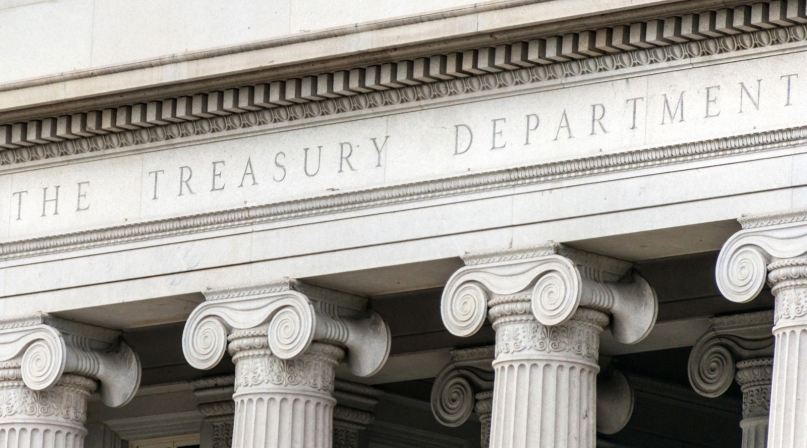Counties & the national debt: What defaulting on the national debt could mean for counties
Author

Paige Mellerio
Upcoming Events
Related News

Key Takeaways
At some point soon the United States government could default on the national debt. U.S. Treasury Secretary Janet Yellen has stated that if the federal debt ceiling is not raised by June 5, the federal government could miss or delay payments on their obligations resulting in a technical default.
Counties have already begun to feel the impacts of the uncertainty of the looming debt ceiling. On March 1, the U.S. Treasury announced it would be taking further extraordinary measures to avoid a default on our federal debt by suspending the sale of special purpose State and Local Government Series (SLGS) securities. SLGS are a crucial tool that state and local governments employ when refunding municipal bonds and investing bond proceeds. Suspending the sale of SLGS limits counties’ ability to refinance or issue additional bonds to save taxpayers money and continue to finance critical infrastructure to serve our residents and businesses.
While congressional leadership and the White House continue to negotiate an agreement to raise the debt ceiling, we are less than one-week from the June 5 meaning there is not much time left to come to an agreement and pass a bill through both the U.S. House and U.S. Senate.
As such, counties should begin thinking about what would happen if the United States government defaults and misses obligations beginning June 5 by considering the following.
- Counties should review their investment portfolio and be positioned with enough cash on hand to meet obligations and make-up for any shortfall in principle or interest payments from any U.S. government-issued securities. In the event that the federal government defaults on the debt and is unable to pay these obligations, it is unclear when these payments will be made. Counties should therefore prepare a cash reserve just in case.
- A default could significantly increase the cost of issuing short-term debt that counties often use for immediate costs related to infrastructure and capital improvement projects. Counties should be prepared that this could mean delays and cancelations of capital projects financed with debt until the debt ceiling is resolved and interest rates stabilize.
- An inability of the federal government to meet their obligations could result in a level of economic uncertainty that causes credit markets to tighten which could make it more difficult for lower rated issuers to issue debt in the market.
The United States has never defaulted on the national debt, however counties should be aware of the potential impacts a default could have on our short- and long-term fiscal health.
NACo urges the U.S. Congress to raise the debt limit and urge bipartisan support for fiscal policies that strengthen the federal-state-local partnership and help us achieve our shared goals of keeping communities healthy, safe and vibrant.
Attachments
Related News

County Countdown – April 7, 2025
Every other week, NACo's County Countdown reviews top federal policy advocacy items with an eye towards counties and the intergovernmental partnership. This week features a budget reconciliation update, HHS restructuring and more.

